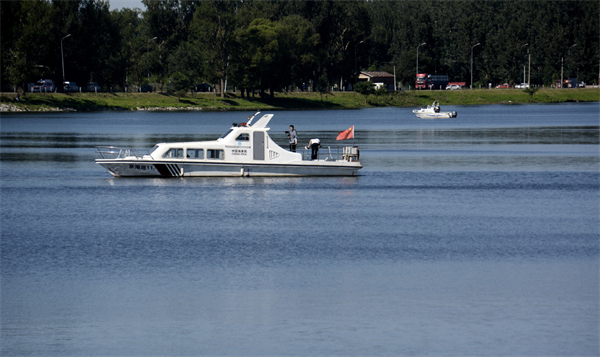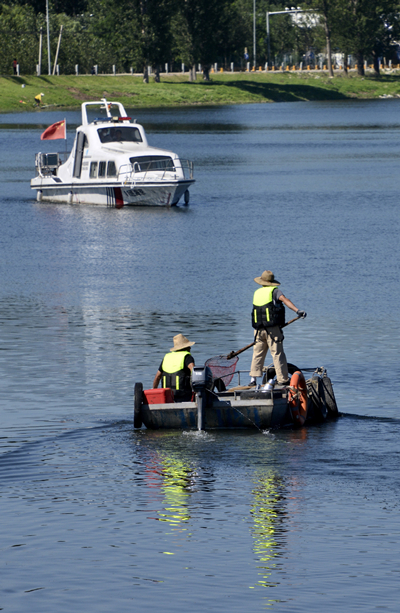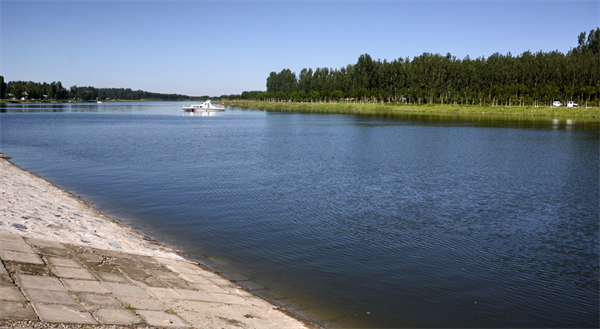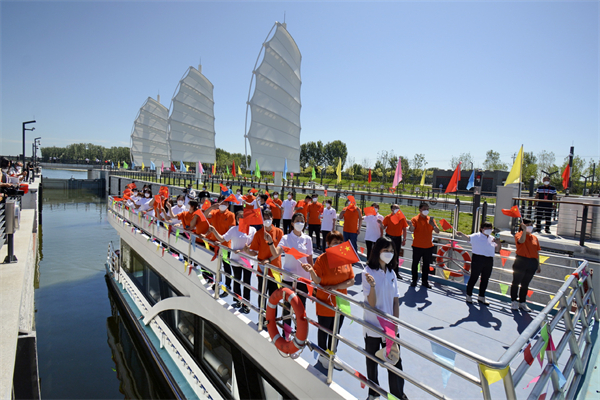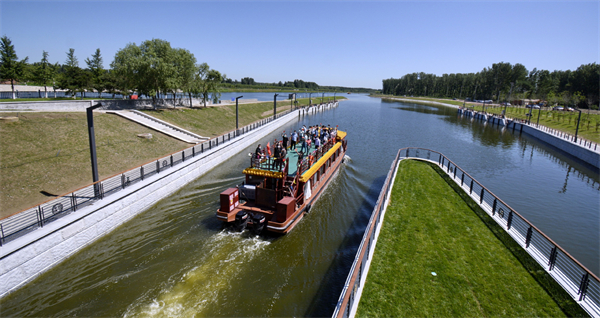
BEIJING/SHIJIAZHUANG — The Beijing-Hebei section in the northern stretch of the Beijing-Hangzhou Grand Canal opened to navigation for tourism on June 24, giving visitors a chance to appreciate views of the Chinese capital and its neighboring Hebei province along the canal.
Last June, the Beijing section of the Grand Canal, the world's longest artificial waterway, and its Langfang section in Hebei were opened for tourism at the same time.
Beijing's sub-center Tongzhou district and Hebei's Xianghe county under the administration of Langfang city negotiated in February for connectivity of the whole Beijing-Hebei section for tourism.
The two sides have drawn up three cruise routes, of which the longest is a 40-km journey taking four hours and the shortest one is 6 km and 45 minutes.
"It marks the first time that Beijing launched inter-provincial waterway and inter-provincial water transport for tourism," said Yuan Yongjun, deputy head of the waterway management department of Beijing Municipal Commission of Transport.
The two sides will strengthen exchanges to maximize the comprehensive benefits of canal tourism, Yuan said.
To ensure smooth connectivity, Beijing and Hebei have established a water coordination mechanism to scientifically regulate water levels and water quality, promoting joint law enforcement of water ecological governance.
The opening of the Beijing-Hebei section of the Grand Canal is another important move to advance the coordinated development of the Beijing-Tianjin-Hebei region.
With a history of more than 2,500 years, the Grand Canal connects Beijing and Hangzhou in East China's Zhejiang province, serving as a significant transportation artery in ancient China. An over 1,000-km-stretch of the canal was declared a world heritage site in 2014.
